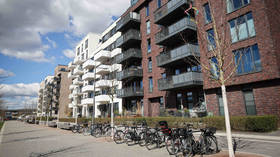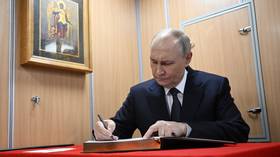German government eyes rent freeze

Berlin is considering the introduction of a three-year nationwide rent freeze in an effort to control housing costs in the EU’s largest economy, according to a senior figure in the country’s ruling coalition.
The proposal comes amid skyrocketing rents that have caused hardship for tenants as Germans struggle with the fallout from the energy crisis and inflation that has remained persistently high since last year.
“We need a breather for tenants – we need a rent freeze for the next three years,” Verena Hubertz, the Social Democratic Party’s deputy parliamentary group leader, told Bild am Sonntag last week.
Under the plan, landlords could be forced to refund rents deemed “usurious” if the rate charged is more than 20% above local market levels in areas with limited supplies of homes.
The government is also planning to tighten rules that are already in place to limit rent increases, as furnished residences let for temporary accommodation do not always fall within the scope of the restrictions.
Current rules aimed at regulating the country’s property market cap rent increases at 20% over three years or 15% in areas that have been designated as having particularly tight housing markets. Berlin has already agreed to lower this cap to 11%, but this is not enough, according to the federal government.
The new restrictions would allow rents to rise by a maximum of 6% in cities where demand is very high, and a blanket freeze would apply across the rest of the country.
Rents have surged at record rates this year in Germany. The cost of housing in the country has traditionally been stable enough to allow families not to buy their own property, but live in a rented house or apartment throughout their lives.
According to the German Federal Statistical Office, among Germany’s 41 million households, slightly fewer than 60% currently live in rented accommodation.
Germany is also facing higher prices for other goods. Overall consumer price inflation was 6.2% in the year to July, against a Eurozone average of 5.3%. Sticky inflation pushed Germany into recession in the first three months of the current year, as the nation has been significantly affected by reduced energy supplies from Russia.
For more stories on economy & finance visit RT's business section














